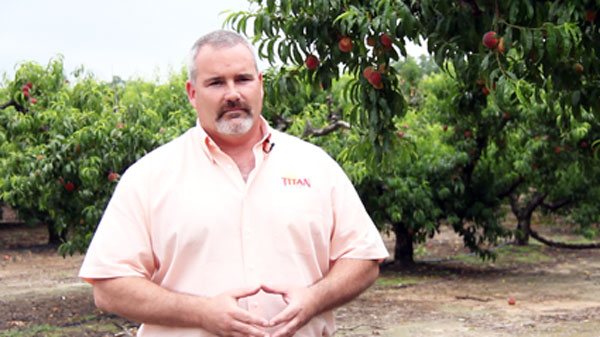
South Carolina peach grower looking for immigration reform
• Chalmers Carr brings in more than 500 Mexican workers to thin, harvest and pack peaches.• There’s no other way besides hand labor to do this.• According to Carr, it can take up to 60 days to get workers on his farm, and that's if things go as smoothly as possible.
August 5, 2013

South Carolina’s Chalmers Carr needs Congress to pass immigration reform that includes a workable program for farmers and ranchers.
If it doesn’t happen, he’ll continue having problems getting his peaches to market.
Carr brings in more than 500 Mexican workers through the onerous H-2A program. They trim peach trees and pick and pack about 2 million boxes of peaches annually on his Saluda County, S.C.-based Titan Farms.
"You cannot thin, harvest or pack peaches without manually having hands," Carr explained. "There's no other way to do this."
That applies to the bell peppers and broccoli Carr grows, too.
Participating in H-2A is not a simple process.
According to Carr, it can take up to 60 days to get workers on his farm, and that's if things go as smoothly as possible. Among the many steps he has to take are proving there are no U.S. workers interested in the job, dealing with both the state and federal labor departments to get certified to host the laborers, and going through the U.S. Homeland Security and U.S. State departments to secure the workers' visas.
Accounting for 40 percent of his production costs, labor is Carr's No. 1 expense. He takes an additional hit when there are hiccups in the process.
"We've had delays with workers about every other year," Carr said. "And when you're dealing with time-sensitive, perishable crops, that's the difference in making money and not making money."
Carr is far from the only grower with this problem. A national survey of H-2A employers shows that on average workers arrive 22 days after they're needed because of administrative delays, resulting in an economic loss of nearly $320 million.
As much as he would like to avoid H-2A's costs and headaches, Carr is left with no other option. In the last two years he's advertised in the U.S. for more than 2,000 jobs.
"We've had about 600 U.S. workers apply for the jobs-about one-third of what I need-but we've had only 15 take the job and stay all the way through," he said. "How can I pick these crops with 15 workers?"
Emphasizing the urgent need for reform, Carr encouraged Americans to consider the alternative.
"Your fruit is going to be harvested one way or another by a foreign national," he said. "Do you want it harvested here in this country with our food safety regulations versus having that foreign national harvest them in another country where you don't have the same food safety protocols?"
You May Also Like



